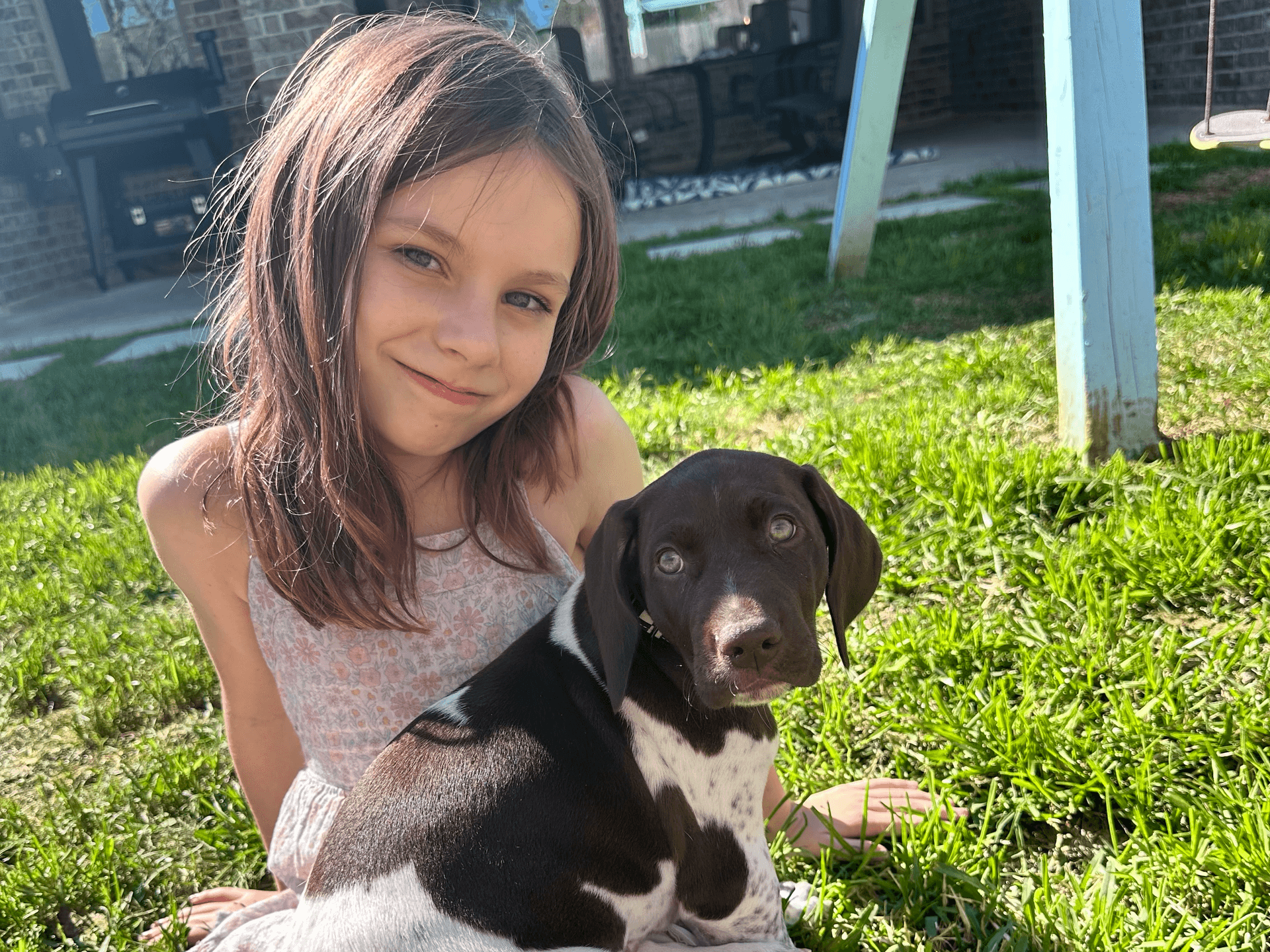Helping Your Puppy Adjust to Their New Home
TTR's Tips & Pointers Blog
What to Expect of Your New Puppy
Bringing home a new puppy is exciting, joyful, and full of anticipation. You’ve seen the videos—happy, playful, social pups, relaxed in their familiar environment. But then reality hits. Your new puppy may cry in the crate, hesitate to greet visitors, refuse to walk on a leash, or seem overwhelmed by their new world. Suddenly, that perfect puppy feels like a handful.
This transition is completely normal.
Understanding Your Puppy’s Perspective
Your puppy has spent their entire life in the breeder’s home—surrounded by their mother, littermates, and a familiar routine. Overnight, they’re taken to a brand-new environment with unfamiliar people, sounds, smells, and expectations. Imagine being dropped into a foreign country where you don’t know the language or customs—overwhelming, right?
Puppies experience stress in different ways:
🐾 Temporary loss of appetite
🐾 Reluctance to play or interact
🐾 Nervousness around new people or environments
🐾 Digestive upset (diarrhea or vomiting)
🐾 Fatigue or withdrawal

How to Help Your Puppy Adjust
- Give Them Time – Puppies take 2-4 weeks (or longer) to fully acclimate. Not just a day or two!
- Limit Visitors – Hold off on guests for the first two weeks to give your puppy time to settle in. When visitors do come, have them sit quietly and let the puppy approach on their own terms.
- Protect Their Health – Ask guests to remove their shoes before entering to prevent exposure to germs before the puppy is fully vaccinated.
- Stick to a Routine – Following the breeder’s schedule helps create stability and predictability, making the transition smoother.
- Keep Their World Small – Restricting access to a small area of the house prevents overstimulation and makes house training easier.
- Go Slow with Leash Training – Most 8-12 week-old puppies won’t immediately walk on a leash. Let them drag the leash inside first, then use treats and encouragement to build confidence.
- Let the Bond Develop Naturally – Expecting an instant connection is unrealistic. Puppies need time to learn their place in the family and feel safe before forming deep bonds.
- Prioritize Training – Basic training strengthens your bond and helps your puppy understand expectations, giving them confidence and structure.
- Supervise Children Closely – Puppies are small and fragile. Teach kids how to interact gently and recognize when the puppy needs space.
- Be Patient & Understanding – Every puppy is different. Comparing them to past dogs won’t help—meet them where they are and support their unique journey.

Puppy Outings: Timing Matters
Outings should be planned at your puppy’s pace. While you may imagine long walks or park visits, your puppy might only handle short distances at first. Watch for cues on when to proceed or take breaks. Avoid taking your puppy to dog parks, pet stores, and other high-traffic areas where dogs gather until they are fully vaccinated to protect their health and safety.
Many early outings are spent simply standing still while the puppy slowly explores. This is normal! Give them time to build confidence—rushing can create fear and setbacks.

Final Thoughts
If your puppy was thriving at the breeder’s home but is now struggling, they don’t need fixing—they need your support. The adjustment takes time, patience, and training.
By setting realistic expectations and guiding your puppy through this transition with positive reinforcement, you’re helping them grow into a confident, well-adjusted companion. See the world through their eyes, give them grace, and enjoy the journey together! 🐾
Love your puppy and they will love you 100 times more in return!
Cheers to Happy Tails & a Lifetime of Love!
📸 Featured TopPup: TTR’s Bruno from our 101 Spots Litter

